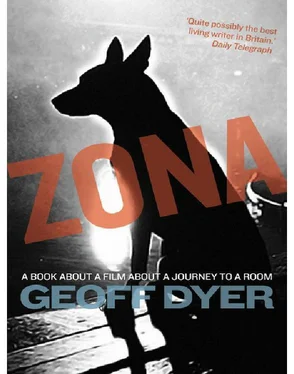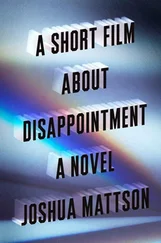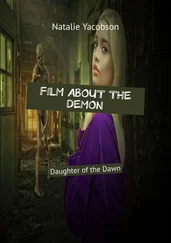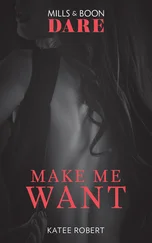IT SEEMS LIKE THE END but it’s not the end. We are back at the bar, in the bar in fact, looking out through the smeary door that has not been washed in the however-long-it-is interlude while they have been busy not thinking about Bo Derek, having the time of their lives— though not quite the time they thought they were going to have — in the Zone. The bar door is open. Across the stretch of industrial water we can see the power station, looking all Didcot and grey because — oh yes, we’re also back in black-and-white, here in the world that is not the Zone. The noise of the train, the 6:10 to Boléro. Just outside the door is Stalker’s wife, all bundled up in a sheepskin coat and she has their daughter, Monkey, with her, and some crutches leaning by the stairs. The wife comes up the stairs to the boozers — there they are, the three of them. Luger, the barman of few words, is there too, and he’s the first to see her. Uh-oh. They’re back, though we have no idea how they got back. Stalker kept telling them there was no going back but, among the lessons learned and not learned, one might be that there is nothing but going back. 44
The wife could be forgiven for thinking that they’ve been here all the time, on a colossal bender, or having ingested a powerful psychedelic, getting so fucked up that mere survival — the avoidance of liver failure or mental breakdown — seems like an achievement. They all look pretty messed up: rumpled, mud-smeared, damp, but not totally Boris-Mikhailoved — nothing that couldn’t have been the result of a half-decent drinking session. If she didn’t know her husband better…Well, whatever it is they’ve been up to they’re none the wiser for it. Or per-haps they’re a hell of a lot wiser if, by wiser, we mean sadder and if, by sadder, we mean damper. The thing about wisdom is that it rarely reveals itself in appearances; one never knows what it looks like in human form.
But wait — something is different. They’ve got a dog with them. The dog, from our point of view, is the only proof that they’ve been where they say, proof that this place called the Zone exists. It’s like the rose that Coleridge mentions, the one you dreamed you found in paradise (the one, to be honest, that I’ve had cause to mention elsewhere, in a not unrelated context) and then, on waking, find in your bed. Stalker is feeding the dog. Other than that nothing has changed, but then that’s always the way when you go anywhere and come back. Nothing has ever changed, even if the place you come back to has changed unrecognizably, which is definitely not the case with this dump. The lonesome whistle is still blowing, doesn’t sound any less lonesome. Luger is still smoking and the bar is still a bit of a dump. The flickering light, it goes without saying, is still flickering. The wife comes into the bar, one part local sheriff confronting three gunslingers, one part stern mum whose adolescent son and his mates have been caught drinking. And they have been drinking, we can see now: they’ve got a beer each and who can blame them? No one could begrudge them a few beers after what they’ve been through, even if it’s not clear what it is they’ve been through. She asks about the dog and plonks herself down on the bench. Does either of you two want dogs? They don’t. Writer has five at home already — seems a lot but maybe he’s got a bigger house than we imagined. So you love dogs, do you, she says. That’s a good thing (as though liking dogs could ever be anything other than a good thing). 45
So, says the wife, are we going?
The dog trots out of the bar, followed by Stalker and his wife. (Could it be that Stalker did set foot in the Room after all, that his deepest wish was to have a dog?) Writer and Professor — the pair of them look so dirty they could be in a socialist-realist drama about coal miners — watch them go: Stalker, his wife, the dog, and Monkey, their kid. Writer is smoking a cigarette, squinting through the smoke in a writerly way, watching them go, looking like he’s learnt something, something that he may one day put into writing: An empty bar, possibly not even open, with a single table…
From here on we are in a realm of loveliness unmatched anywhere else in cinema. We are able to believe in something blatantly untrue, an amendment to the idea that men were put on earth to create works of art: that the cinema was invented so that Tarkovsky could make Stalker, that our greatest debt to the Lumière brothers is that they enabled this film to be made.
SWITCH TO COLOUR, to the daughter, Monkey, in profile and in close-up, swathed in a golden-brown head scarf, walking through the bare blur of trees, with the dog. So, colour is not the unique preserve of the Zone after all. Something that is almost snow — sleet, gobs of rain, sky-blossom — is falling. The music on the sound track is that spooky electronic drone again that we heard right at the beginning, before they went to the Zone. We can still see only her head bobbing along but the focus is not as tight and we watch her moving through more of the landscape, covered in snow or pale ash. The lake or river is a dull grey. As the camera pulls back we see that Monkey is not walking; she is on her father’s shoulders, and the landscape, though desolate, has a desolate beauty. They make their way through the wasteland, Stalker, his wife and child, Monkey, and the dog. In Kenzaburo Oë’s story, ‘The Guide ( Stalker ),’ a dinner guest, Mr. Shigeto, comments on ‘the excellent acting of the dog in [this] scene’. Mr. Shigeto’s wife disagrees: ‘Fine acting on the part of dogs is mere coincidence, with the exception of super movie dogs like Lassie or Rin Tin Tin. And even their acting, she claimed, wasn’t acting in the truest sense, for their roles were always the same.’ She is here echoing a point made by Béla Balézs, that only ‘plants and animals do not act for the director.’ If they are right then this actually fits in well with what Tarkovsky required of his human actors too. Donatas Banionis — Kris in Solaris —was uneasy with the director’s lack of interest in psychological motivation and his exacting demands that the characters move a certain number of steps or remain quite still for a precise number of seconds. For Banionis this was not acting but ‘posing’ or ‘counting one-two-three.’ Dogs can’t count but this one does everything required of him, moving like the director’s counter on a Ludo board, tail wagging, tagging along with Stalker and his wife and child. 46One assumes that if the dog had strayed into the Room he would have wanted to go on as he was, with his untroubled doggy life. Or maybe not. Maybe he was lonely padding around the Zone, wandered into a room and, although he didn’t know this room was the Room, his innermost wish — to be adopted and taken home by a nice family of humans— was granted. (Inconceivably cynical, surely, to suggest that his deepest wish was to be a movie-star dog?)
Paradise Lost ends with Adam and Eve making their way out of Eden ‘with wandering steps and slow.’ There is something similarly touching about this scene, though now it is a nice little family (with a new dog) and it’s not a life of exile and unprecedented adventure that lies ahead but a return to the familiar contentments and frustrations of home. It’s reminiscent, in its dreary, postindustrial way, of the pure winter scenes — enhanced by the Brueghel echoes — in Mirror. In the background, across the lake or the river, is the power station, pouring out clouds of smoke or steam. The dog pads on ahead, tail wagging, and then circles back to join the others. They look like the last family on earth, sole survivors of the catastrophe that everyone else calls life.
Читать дальше












